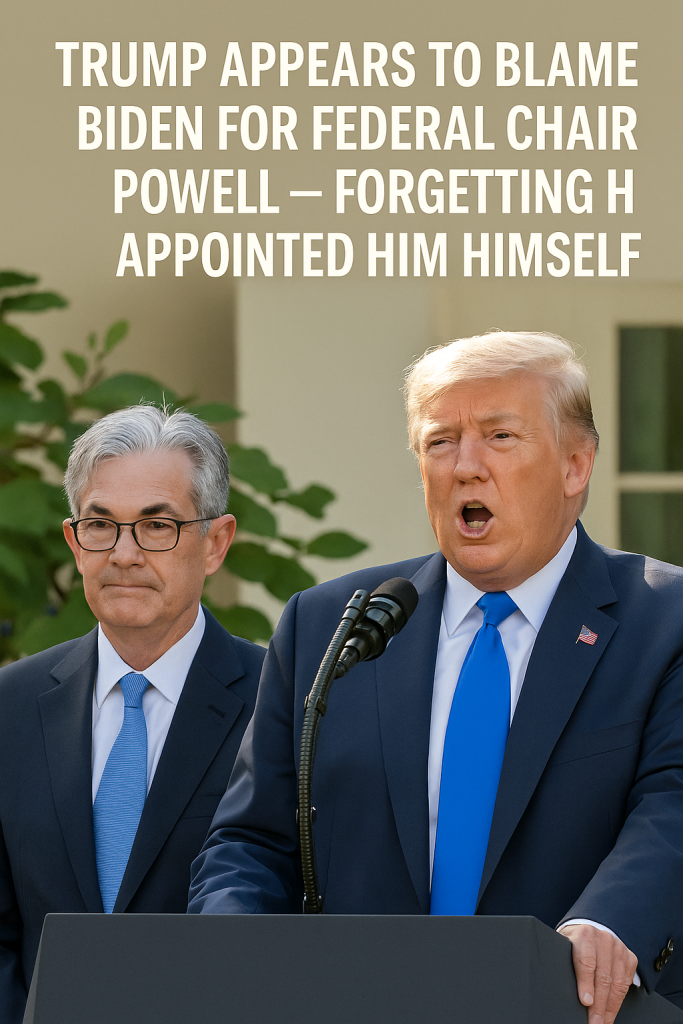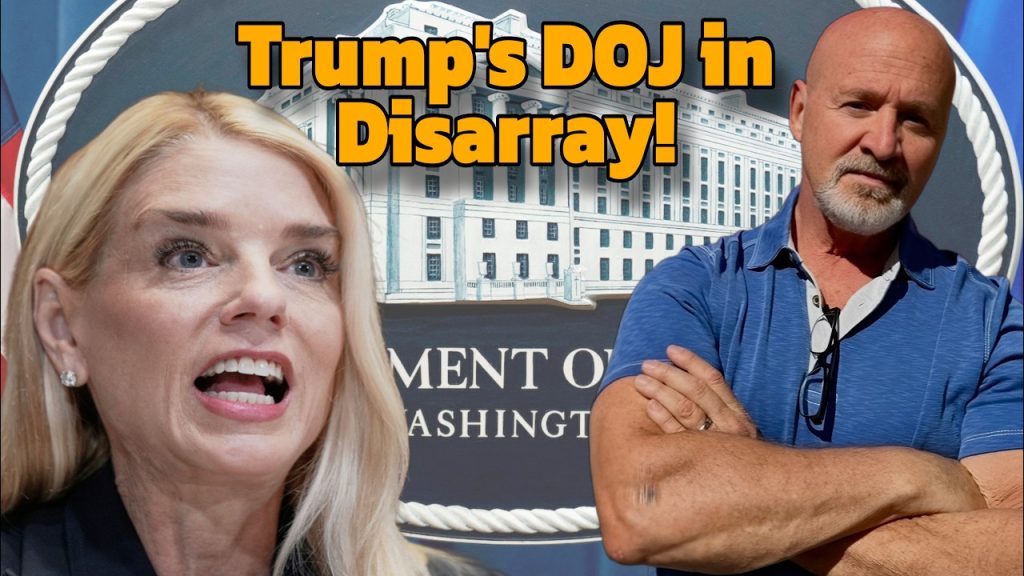In a surprising twist during recent remarks, former President Donald Trump appeared to attribute the appointment of Federal Reserve Chair Jerome Powell to President Joe Biden, seemingly overlooking the fact that he himself nominated Powell to the role.
At a rally and in subsequent interviews, Trump criticized the current monetary policies overseen by Powell, linking them to inflation concerns and economic challenges facing the country. However, during these comments, he repeatedly suggested that the Federal Reserve’s leadership was a reflection of the Biden administration’s choices, despite Powell’s tenure beginning under Trump’s administration.
Jerome Powell’s Appointment History
Jerome Powell was initially appointed to the Federal Reserve Board of Governors by President Barack Obama in 2012. Later, in 2017, President Trump nominated Powell to succeed Janet Yellen as Chair of the Federal Reserve, a nomination confirmed by the Senate. Powell’s term as Chair began in February 2018. Although Fed Chairs serve four-year terms, Presidents have the authority to renominate incumbents. In 2021, President Biden reappointed Powell for a second term, signaling continuity amid economic uncertainty.
Trump’s seeming misattribution of Powell’s appointment to Biden has drawn attention not only because it brushes past his own pivotal decision but also because Powell’s policy decisions remain a topic of political contention across party lines.
The Federal Reserve and Political Dynamics
Powell’s tenure has coincided with unprecedented economic challenges, including the COVID-19 pandemic’s impact, supply chain disruptions, and rising inflation. The Fed’s response, including interest rate hikes and tapering of asset purchases, has sparked debate within and outside Washington.
Trump has historically lambasted Powell, accusing him of mismanaging monetary policy and slowing economic growth. Despite being the appointing president, Trump distanced himself from Powell’s decisions after the appointment. The recent remarks attributing Powell’s role to Biden mark a shift that has been widely noted for its apparent forgetfulness or misrepresentation of historical facts.
Political Implications
Trump’s comments may reflect broader political strategies aimed at shifting public scrutiny of inflation and economic challenges towards the current administration. By holding Biden responsible for Powell’s decisions, Trump seeks to frame ongoing economic difficulties as a failure of Biden’s leadership rather than the continuation of policies initiated under Trump’s own tenure.
However, experts emphasize that the Federal Reserve operates with a significant degree of independence and that chair appointments, while politically nominated, involve complex factors that extend beyond individual presidential preferences.
Public and Social Media Reactions
On social media, Trump’s statements quickly ignited reactions highlighting the contradiction between his claims and the historical record. Commentators pointed out the irony of blaming Biden for Powell’s role without acknowledging Trump’s original appointment. Many shared factual timelines to clarify the chronology.
Regardless of political leanings, the episode underscores the challenge of navigating complex institutional roles within partisan narratives.
As Powell continues to lead the Federal Reserve through a turbulent economic landscape, the spotlight remains firmly on the Fed’s capacity to steer the economy toward stability, even amid political disagreements and misstatements from key figures.



